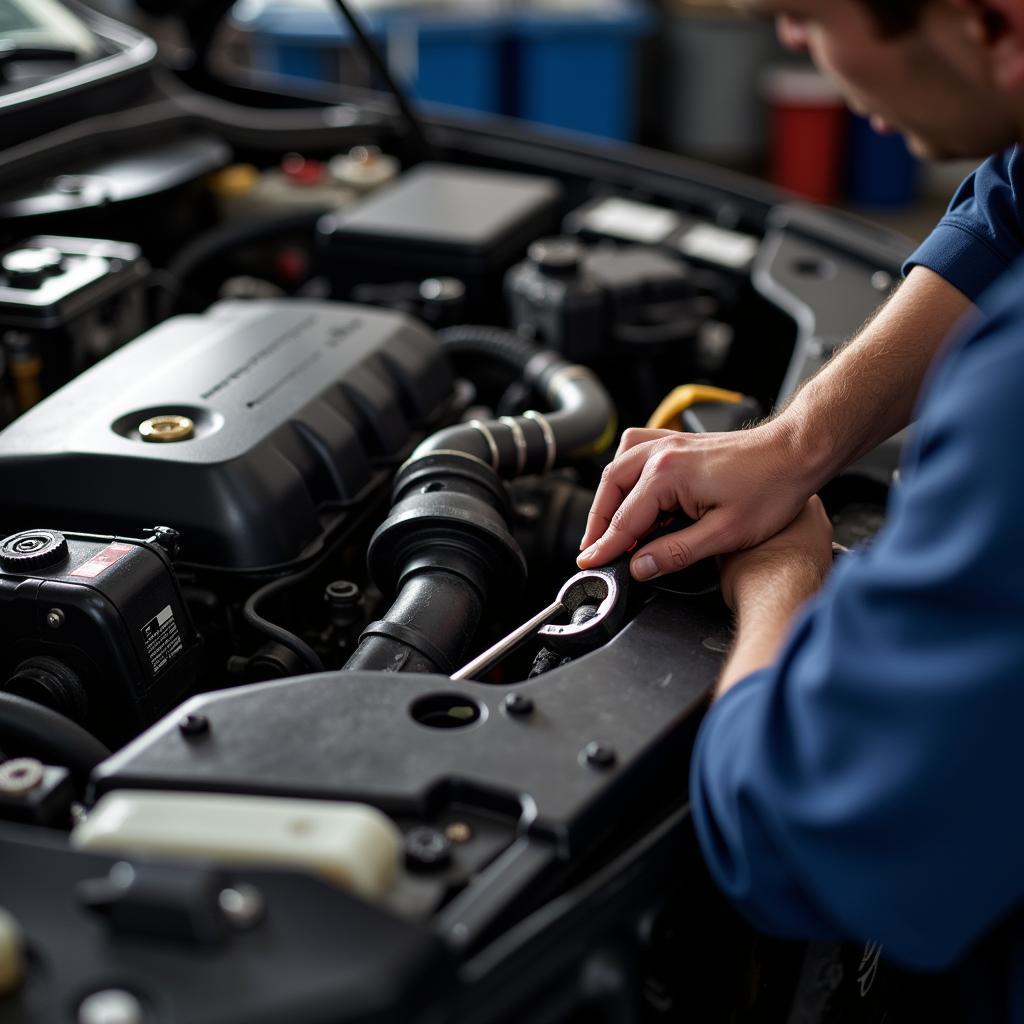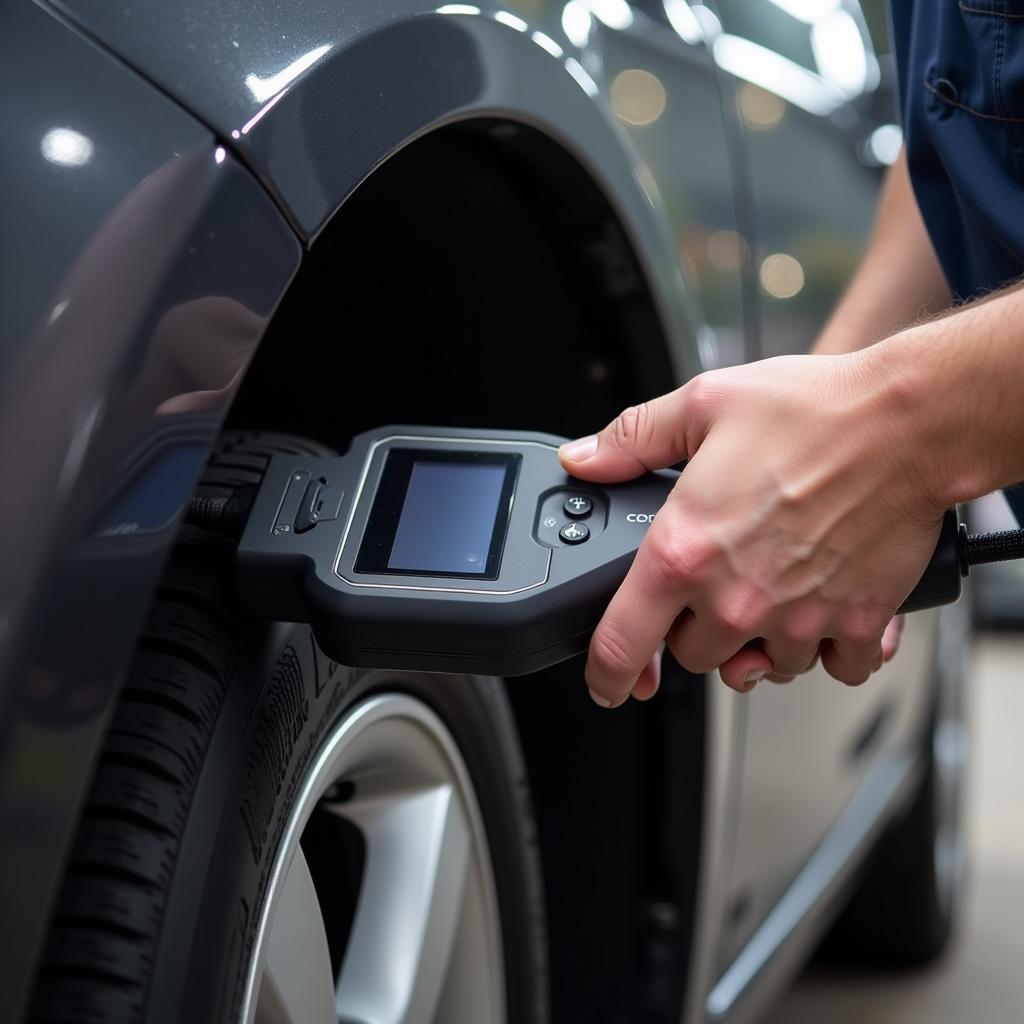What is Done When You Service Your Car?
When you hear the phrase “car service,” what comes to mind? For many, it’s simply an oil change. But servicing your car involves much more than that. It’s a comprehensive health check for your vehicle, ensuring it runs smoothly, safely, and efficiently for miles to come. But what exactly is done when you service your car?
This comprehensive guide delves into the intricacies of car servicing, outlining the essential checks, replacements, and maintenance procedures that keep your vehicle in top condition. Whether you’re a seasoned car enthusiast or a new driver, understanding what happens during a car service empowers you to make informed decisions about your vehicle’s maintenance.
Unraveling the Mystery: What Does Servicing Your Car Entail?
A car service is more than a quick fix; it’s a preventative measure. It involves a series of inspections, adjustments, and replacements of vital components to prevent potential issues down the line. The extent of the service depends on the vehicle’s age, mileage, and manufacturer recommendations.
Essential Checks Performed During a Car Service
A standard car service typically includes the following checks:
- Engine Oil and Filter Change: The lifeblood of your engine, oil, needs regular replacement to prevent friction and wear.
- Fluid Level Inspection: This includes checking the brake fluid, coolant, power steering fluid, transmission fluid, and windshield washer fluid.
- Tire Pressure and Condition: Ensuring proper tire pressure is crucial for safety and fuel efficiency. Technicians will also inspect tires for wear and tear.
- Brake Inspection: Your brakes are paramount to safety. A thorough inspection includes checking brake pads, discs, calipers, and lines for wear and tear.
- Lights and Electrical Components: All exterior and interior lights are checked to ensure they are functional. The battery and charging system are also inspected.
Delving Deeper: Additional Checks for Comprehensive Care
Beyond the essentials, a comprehensive car service may also include:
- Air Filter Replacement: A clogged air filter restricts airflow to the engine, impacting performance and fuel economy.
- Spark Plug Inspection/Replacement: Worn spark plugs can cause misfires, affecting performance and fuel efficiency.
- Belt and Hose Inspection: Belts and hoses can deteriorate over time, leading to leaks or even engine failure.
- Suspension and Steering Check: This ensures your car handles correctly and provides a smooth ride.
- Exhaust System Inspection: The exhaust system is checked for leaks, damage, and proper emissions control.
Car Service Intervals: How Often Should You Get Your Car Serviced?
The frequency of car servicing depends on various factors, including your vehicle’s make and model, your driving habits, and the manufacturer’s recommendations. However, a general rule of thumb is to have your car serviced:
- Every 6 months or 5,000-7,500 miles for an interim service.
- Every 12 months or 10,000-15,000 miles for a full service.
These are just guidelines; always refer to your owner’s manual for the specific service intervals recommended for your vehicle.
 Mechanic Performing Car Service
Mechanic Performing Car Service
The Benefits of Regular Car Servicing: A Wise Investment
Regular car servicing is not an expense; it’s an investment in your vehicle’s longevity, performance, and your safety. Here are some key benefits:
- Increased Lifespan of Your Vehicle: Regular maintenance prevents minor issues from escalating into major problems, extending the life of your car.
- Improved Fuel Efficiency: A well-maintained engine runs more efficiently, leading to better fuel economy.
- Enhanced Safety: Servicing ensures all safety-critical components, such as brakes and tires, are in optimal condition.
- Higher Resale Value: A car with a documented service history is more appealing to potential buyers, commanding a higher resale value.
Beyond the Basics: Tailored Car Service Options
Car servicing isn’t one-size-fits-all. Several specialized services cater to specific needs:
- Manufacturer Service: This follows the manufacturer’s recommended service schedule and is often a condition of the warranty.
- Interim Service: Ideal for high-mileage drivers, this service provides a mid-point check between full services.
- Full Service: As the name suggests, this is a comprehensive service that covers all essential checks and replacements.
- Major Service: This more extensive service is typically required at higher mileage intervals and includes more in-depth checks and component replacements.
Conclusion: Prioritizing Your Car’s Well-being with Regular Service
Understanding “What Is Done When You Service Your Car” allows you to approach car maintenance proactively rather than reactively. Regular servicing is essential for your vehicle’s health, your safety, and your wallet. By adhering to the recommended service intervals and choosing the right type of service for your needs, you’re making a smart investment in your vehicle’s future and your peace of mind.
Remember, a well-maintained car is a reliable car, ensuring you reach your destination safely and without unexpected hiccups.

